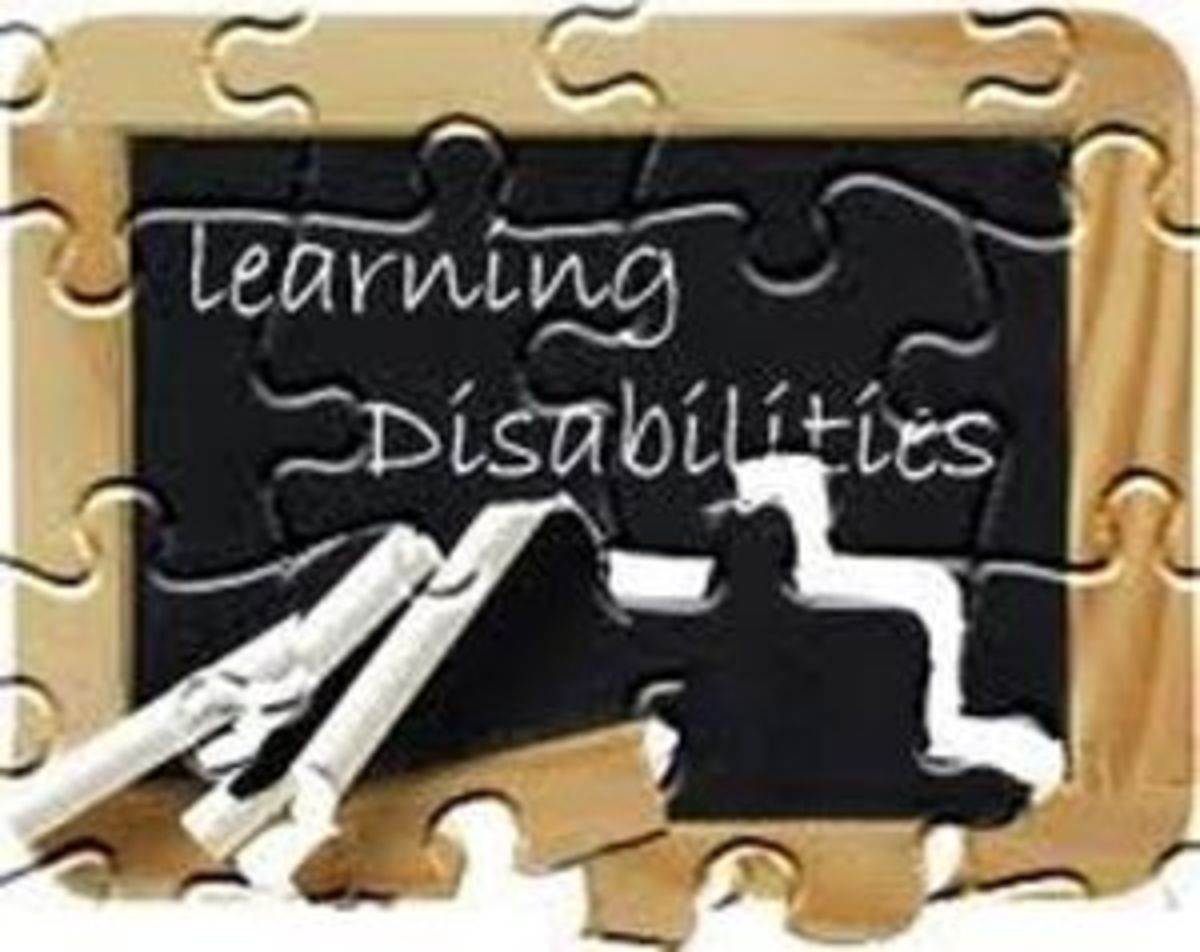Parenting Tips: Children with Hidden Disabilities
Emotional Disability

Hidden Disability
Have you ever heard the phrase "hidden disability"? It is often used to describe a disorder a child has that is not visible to the eye. The child looks "normal," but actually has a mental or emotional illness that limits at least one life function, such as communicating or learning.
Though these children are fortunate to be healthy physically, they may suffer an additional disadvantage since their disabilities are not obvious and are often misunderstood by others. Parents can help by knowing what to say to others about the condition.
Types of Hidden Disabilities in Children
Some types of hidden disorders or disabilities that children may have are:
- Obsessive Compulsive Disorder (OCD)
- Selective Mutism
- ADHD
- Mood Disorder
- Oppositional Defiant Disorder (ODD)
- Bipolar Disorder
- General Anxiety Disorder
- Phobias
- Pervasive Developmental Disorder (PDD)
- Eating disorders
- Learning disabilities
- Communication disorders
- Schizophrenia
Explaining a Mental or Emotional Disability to Friends and Family
You might think that your friends and family would be the most sympathetic to your child's disability, but that is sometimes not the case. Some grandparents are not well-informed about the disorder and may criticize you for "not being strict enough." Friends may not understand, because your child's behavior is so different from all the other kids. Some tips for handling friends and family members are:
- Sit down and have a heart-to-heart conversation. Explain your child's problem and let them know exactly how they can help.
- Provide them with a book or printout that describes the disorder and what can be done to assist the child.
- Have some patience. They just want to help, but may not know how.
Anxiety in Children
Books on ADHD
Explaining a Mental or Emotional Disability to Strangers
It is tough to be out in public with a child who is not able to behave as is expected in our society. The dirty looks and negative comments from strangers really adds to your stress!
For example, your child throws a temper tantrum in the play area of Chick-fil-a and you have to haul him out in your arms. Or maybe your child screams and digs her fingernails across her own arm when another child grabs her toy. Ideally, another person would help clear the way or ask if you need help, but that is not usually what happens.
Strangers see a perfectly healthy-looking child misbehaving or acting "weird." The disapproving looks are most common, but sometimes you may receive a nasty comment or some unsolicited "advice." Some comments I have heard are:
- "That kids needs to be on some medication."
- "What is wrong with her?"
- "Some people just don't know how to control their kids."
- "That kid needs a good spanking."
To respond to these types of reactions, there are several ways to handle the situation. Depending on your personality and how quickly you need to remove your child from the scene, you may consider one of these options:
- Grow thick skin and just completely ignore these people.
- Smile and give a quick apology and explanation like, "Sorry, he has medical issues."
- Stop everything and take advantage of a teaching moment. Explain exactly what condition your child has and how it affects his life and behavior.
Problems at School

Explaining a Mental or Emotional Disability at School
Being successful in school is often very difficult for students with hidden disabilities. Since their problems are not evident, they often do not get the attention they need. If a parent does not know how to advocate for his child, it is possible that the child may slip through the cracks at school. His behavior may be seen as defiant by school staff, and he may be punished when he really should be getting help.
If your child is having trouble at school and you suspect his disability is the cause, you may want to consider accommodations and services through special education. For example, there may be a child with ADHD who has a hard time sitting still, focusing on schoolwork, and taking tests. He constantly is being sent to the principal's office and his grades are poor.
In this case, the parent should ask for a complete psycho-educational evaluation for the purpose of determining eligibility for special education. After the evaluations are done, an IEP team (includes the parent) will meet to see how the ADHD limits his ability to access the public education. IEP accommodations that would help this child might include untimed tests, preferential seating, reduced homework, and breaking classwork into smaller chunks. An IEP plan could make all the difference in your child's success at school.
Whether you decide to pursue an IEP or not, you should still provide your child's teacher with information about your child's condition. You may want to share medical reports and a handout describing the disorder. Good communication is key to making the best plan for your child.










